Five Fits With: Boxing Promoter Eddie Hearn, Who Always Wants to Win
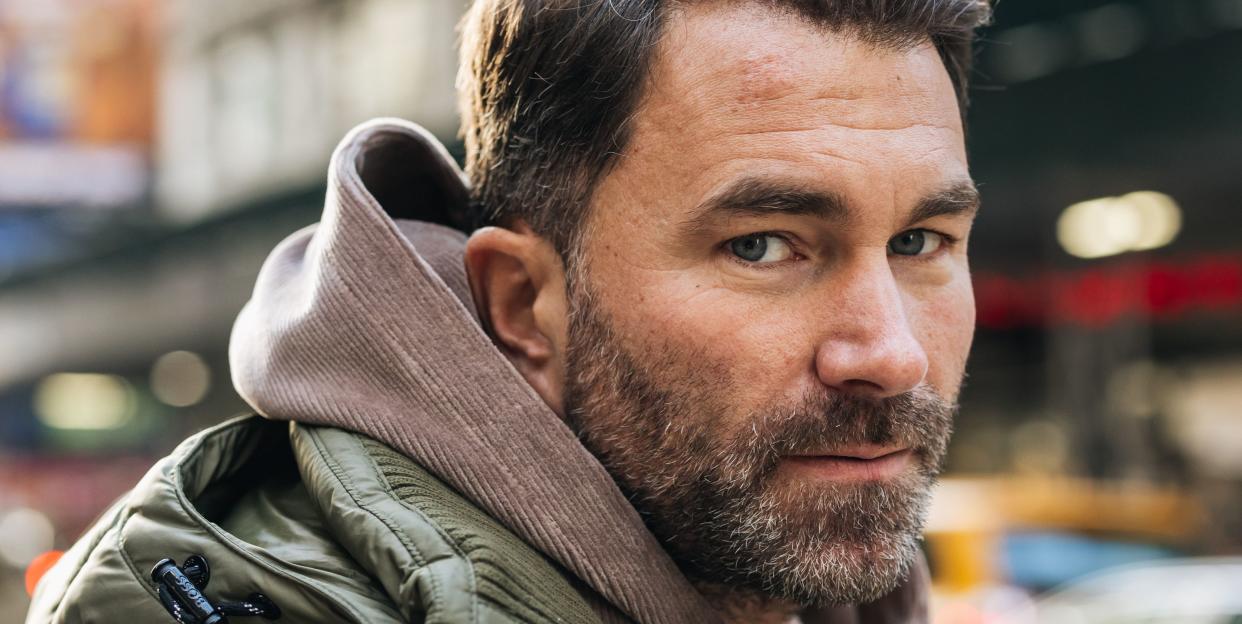
- Oops!Something went wrong.Please try again later.
- Oops!Something went wrong.Please try again later.
One of my best friends is a massive boxing fan, hailing from Essex, and so he was the first person I informed that I’d be interviewing fellow Essexee and boxing-world legend Eddie Hearn for this column. Upon telling Eddie my friend was from Dagenham, he replied “Ask him about my dad. He knows him.” Eddie’s father, Barry Hearn, was involved in the popularization of sports—snooker, darts, pool, tables tennis, to name a few—that are now considered quintessentially British, thanks to his company Matchroom Sport. As we discuss below, Eddie was intent on first crafting his own legacy without the financial help of his father (not that it was on offer) and later realized his talents were best served in carrying on and bolstering the family legacy.
A few weeks ago, when Eddie was in town for a massive fight at Madison Square Garden between Amanda Serrano and Erika Cruz, we sat down to discuss the Hearn legacy, growing Matchroom Sport, the role of style and fashion in boxing, and more.
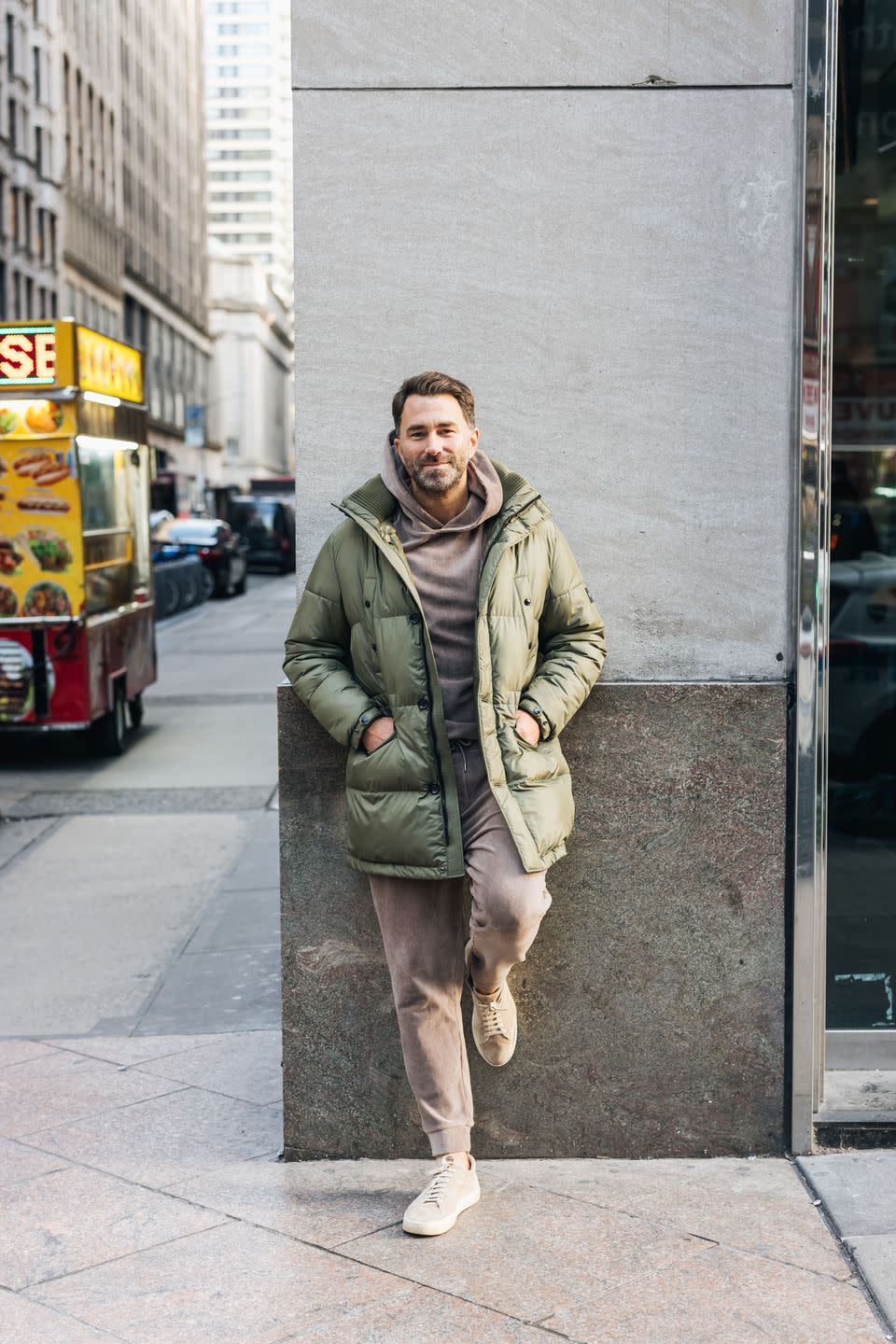
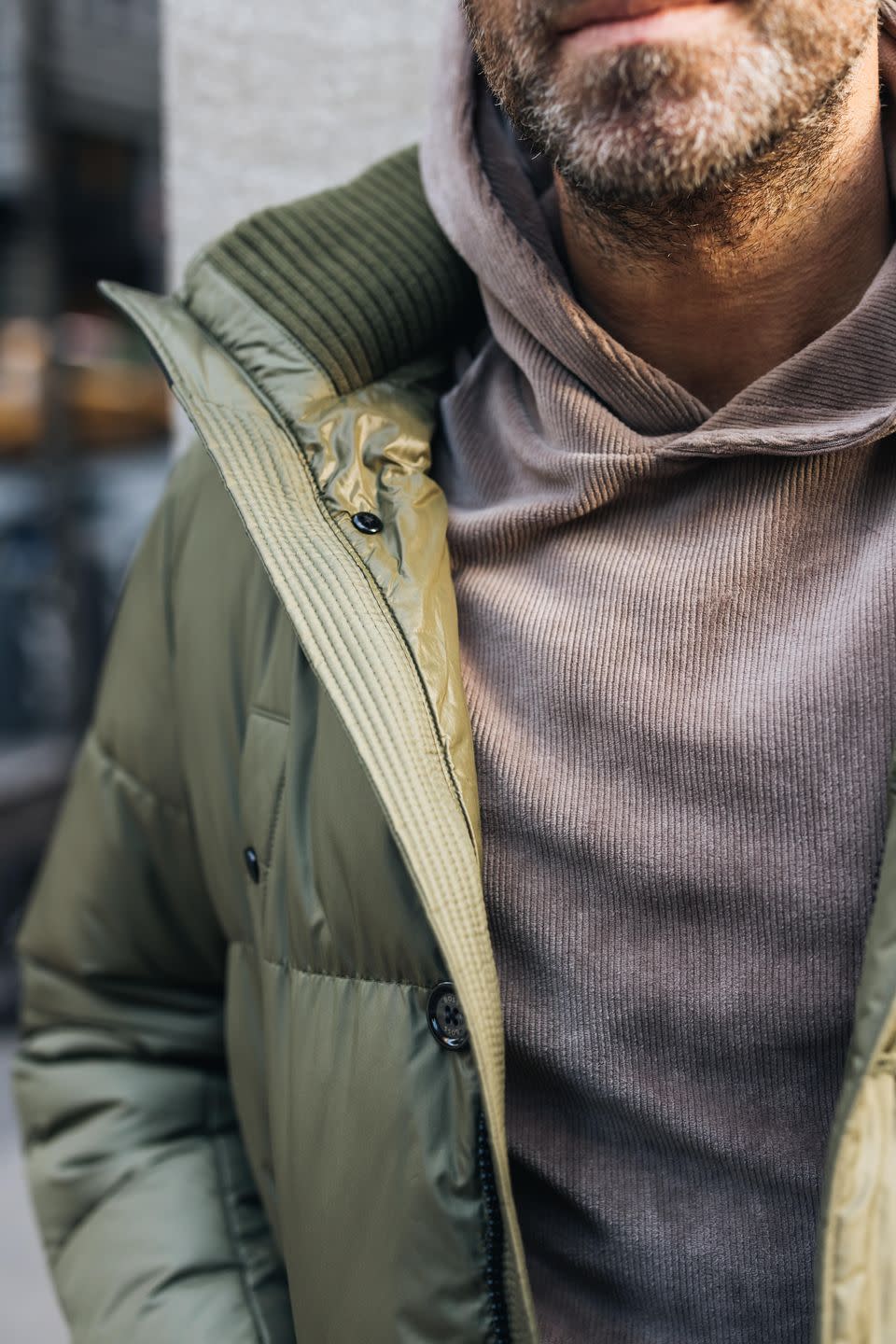
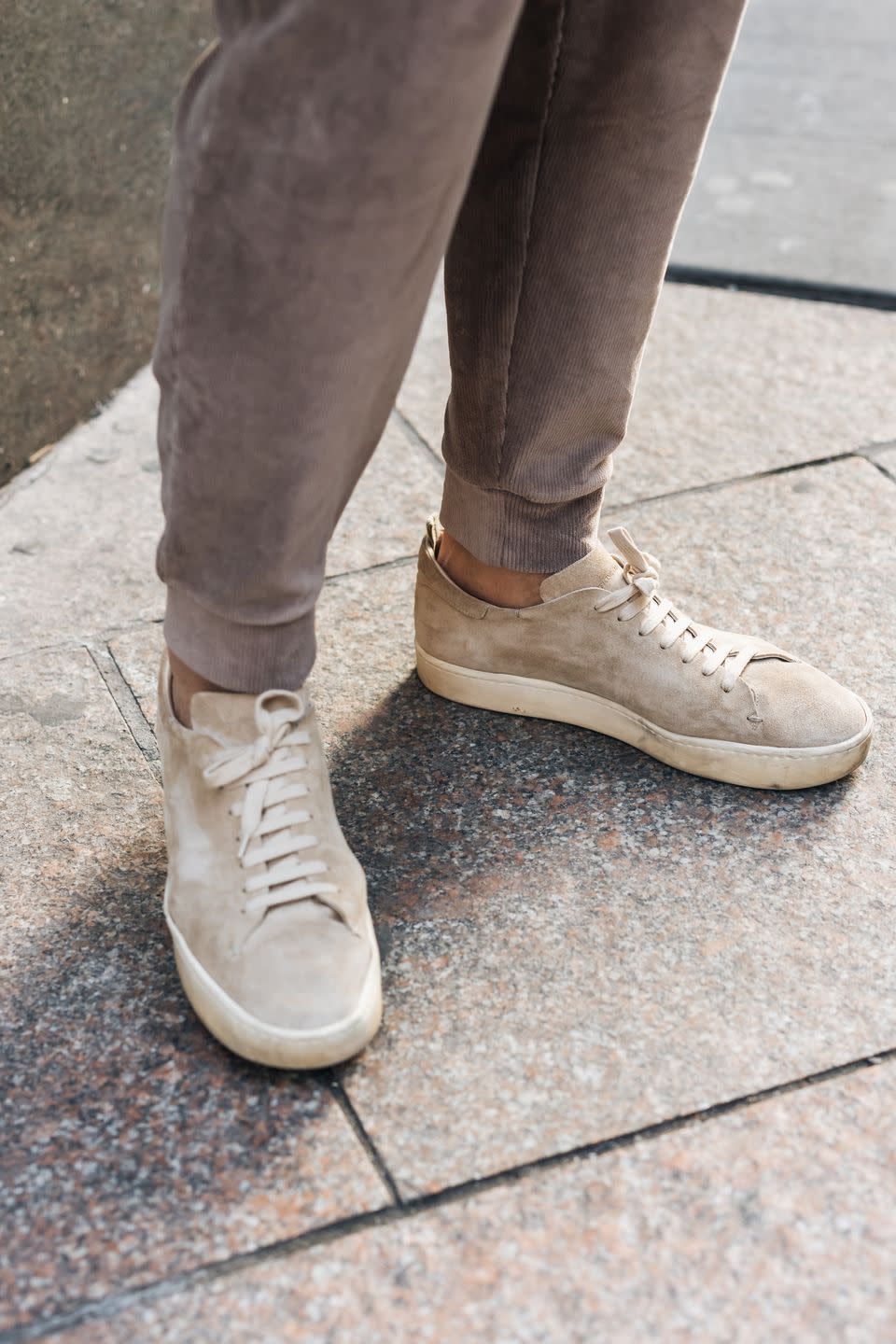
Tell me a bit about your father and the effect he and boxing had on you.
He's a hall-of-fame promoter. My dad grew up in a very underprivileged neighborhood. He was a chartered accountant by trade, very sharp with numbers, a sports lover. Played a lot of sports as a kid and ended up finding his way into snooker. He was doing some investments for a company he's worked with, and met this young snooker player—a bit like White Men Can't Jump; basically this tall, skinny, ginger kid—and they went around hustling everybody at snooker. He entered him in the tournament; next thing this guy was winning the world championship. Snooker's a big sport in the UK. He starts signing all these other snooker players and he revolutionizes snooker in the country. It becomes cool.
Then he got into boxing in about 1988. I was nine. And I spent the next 10 years just traveling around with him to all the big shows with all the fighters, biggest names in the world. He's become an impresario really of going in and changing the faces of sports—whether it's snooker, boxing, or darts—and built the company Matchroom. It's just had its 40-year anniversary. So it's something we take very seriously as a family; all our foundations as characters are built off sport and winning. It's quite strict. For me, he started making money when I was born. I had a very good upbringing, but he never wanted me to be spoiled, and everything was based around sport, but you only win when you deserve to win, and you have to work hard to win.
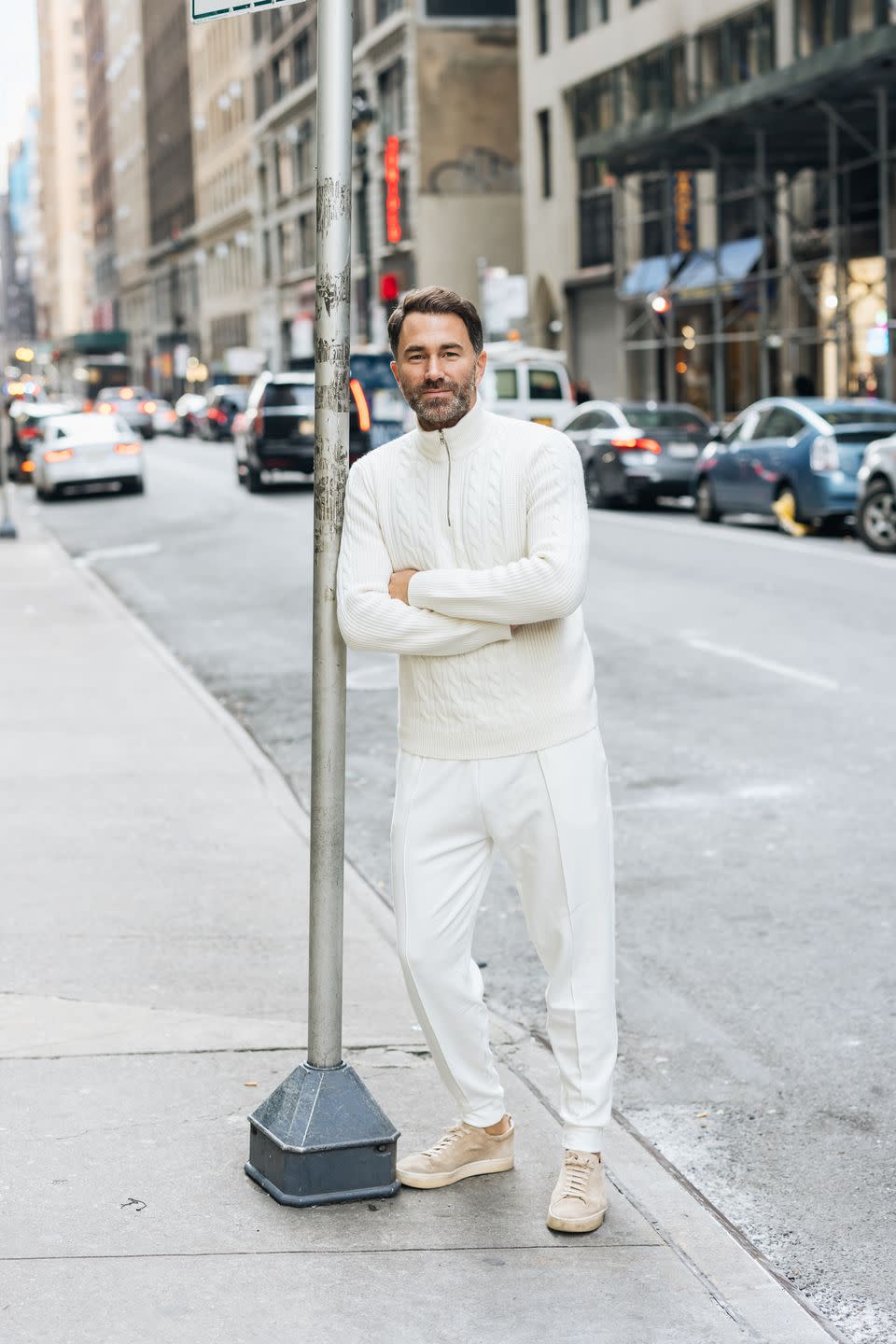
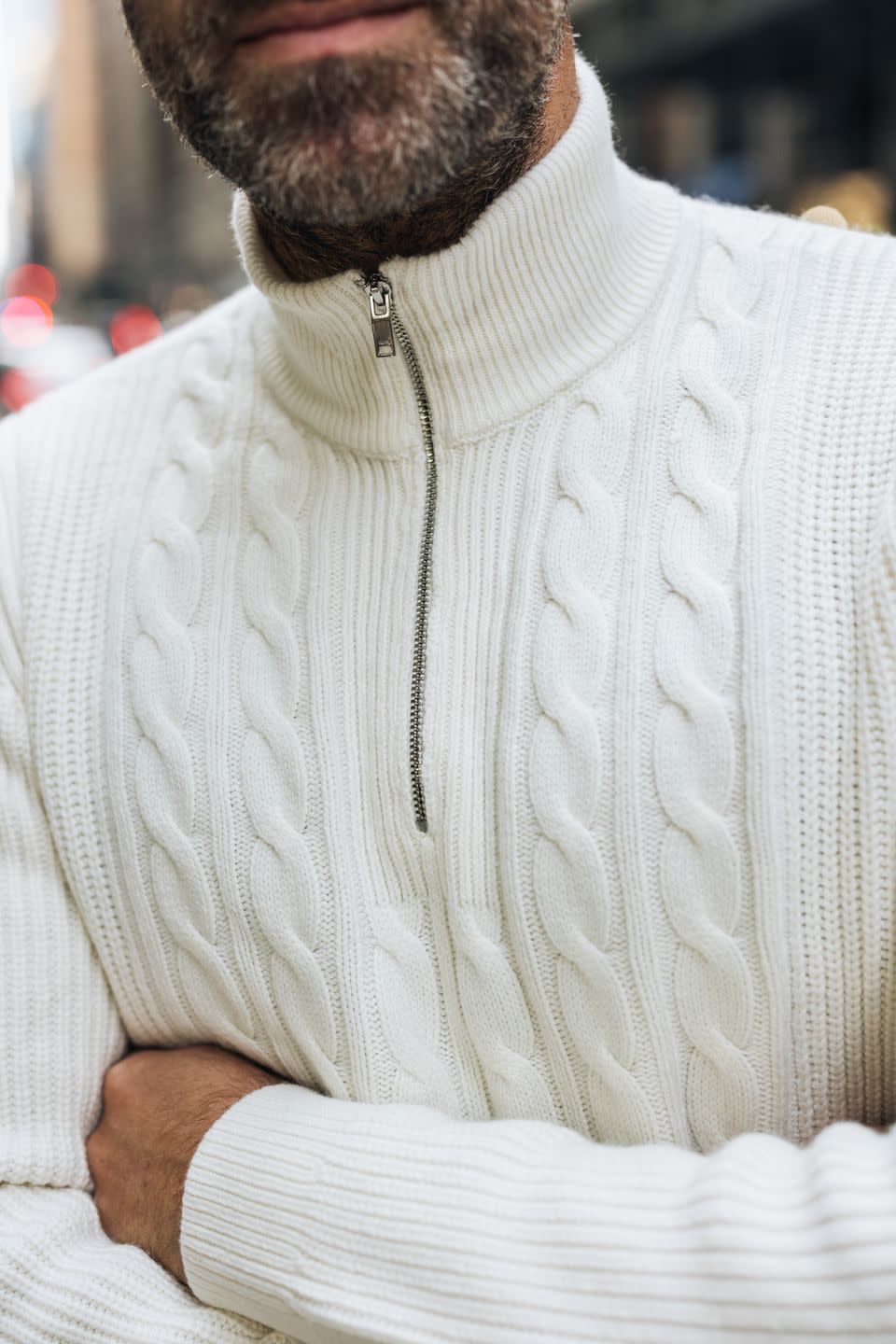
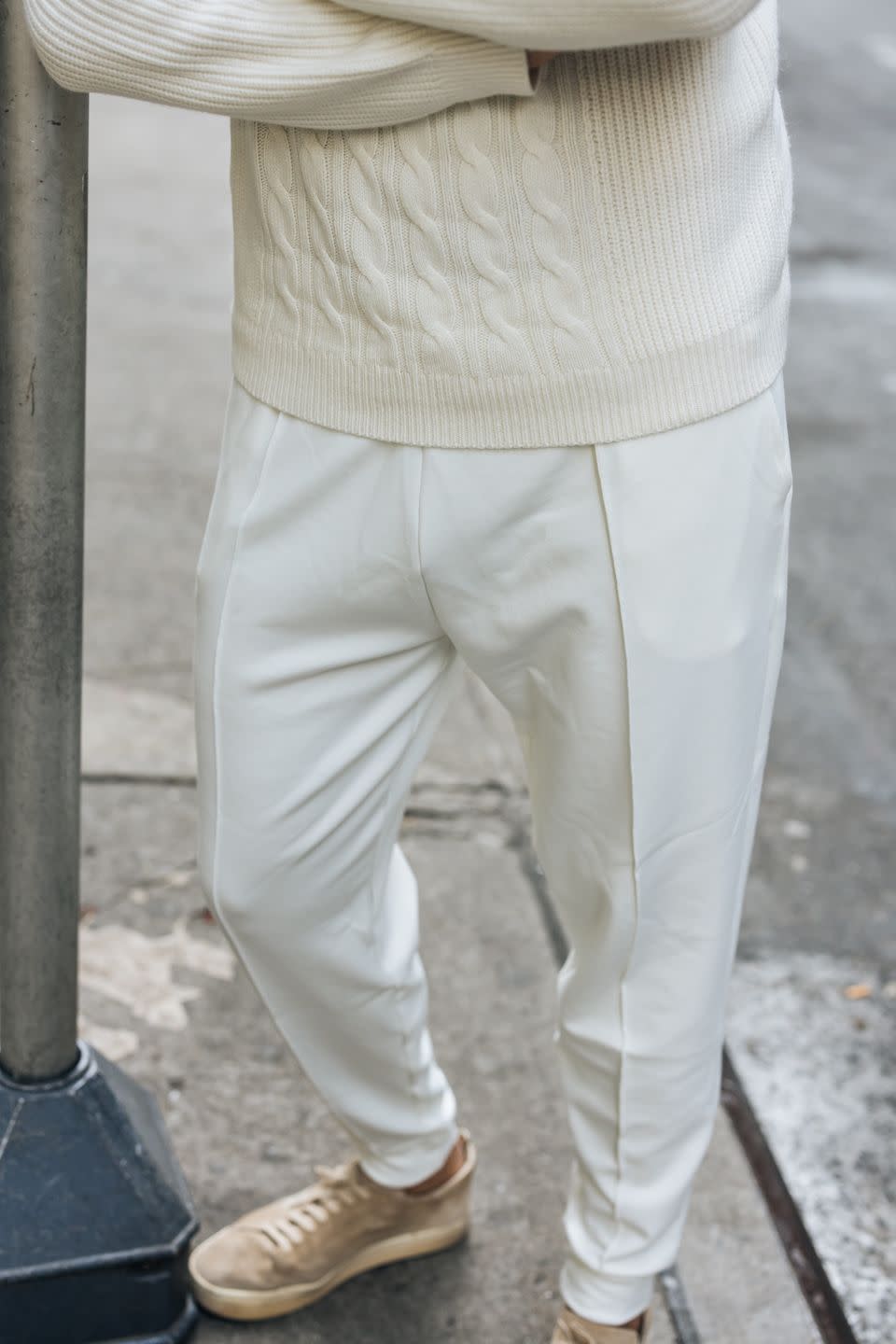
How have you helped grow Matchroom Sport into what it is today?
When I finished college, the last thing I ever wanted to do was work for my dad, because everyone said to me growing up, "Well, you're just going to go and work for your dad anyway." So I went into the sports agency marketplace. I represented golfers on the PGA Tour and the European tour for many years, but felt like it was almost my job to supersede him and carry on the legacy that he built, as his son. I was working in sport, so why wouldn't I work in sport with him or for him? It was like the only way I could make a success in my own name was to outperform him and take the business to new levels, particularly in boxing. That was why the international TV deals are important, because he never did that, and British promoters have never done that—going into different international markets and doing major TV deals. You never really see a British promoter promoting major fights in America. That comes back to sport, to me saying, "I want to beat my dad." Doesn't matter whether we're playing football, table tennis, whatever it is, I want to beat him, and I want to beat him in business. That's been the driver for me to create my own success rather than live in his shadows.
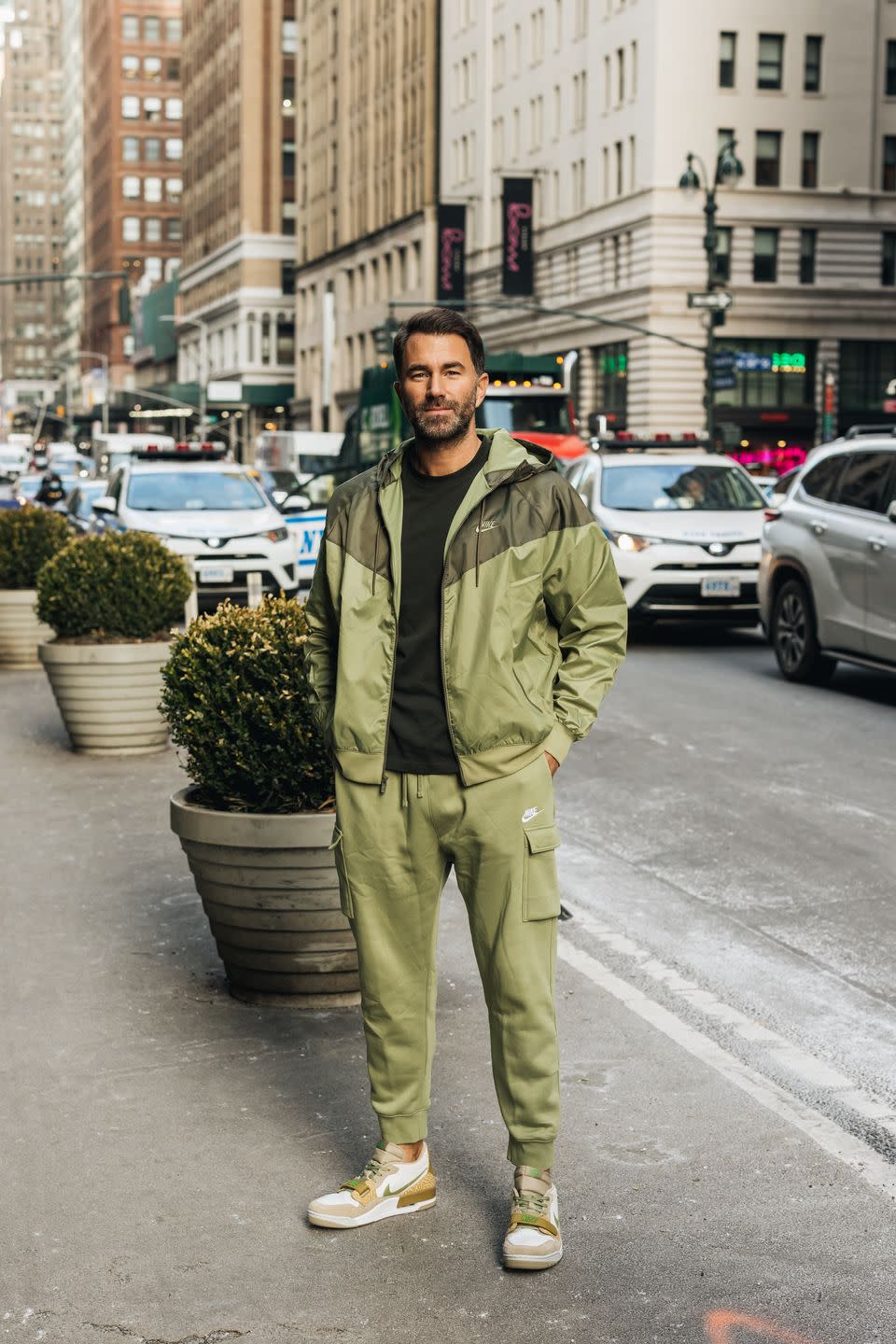
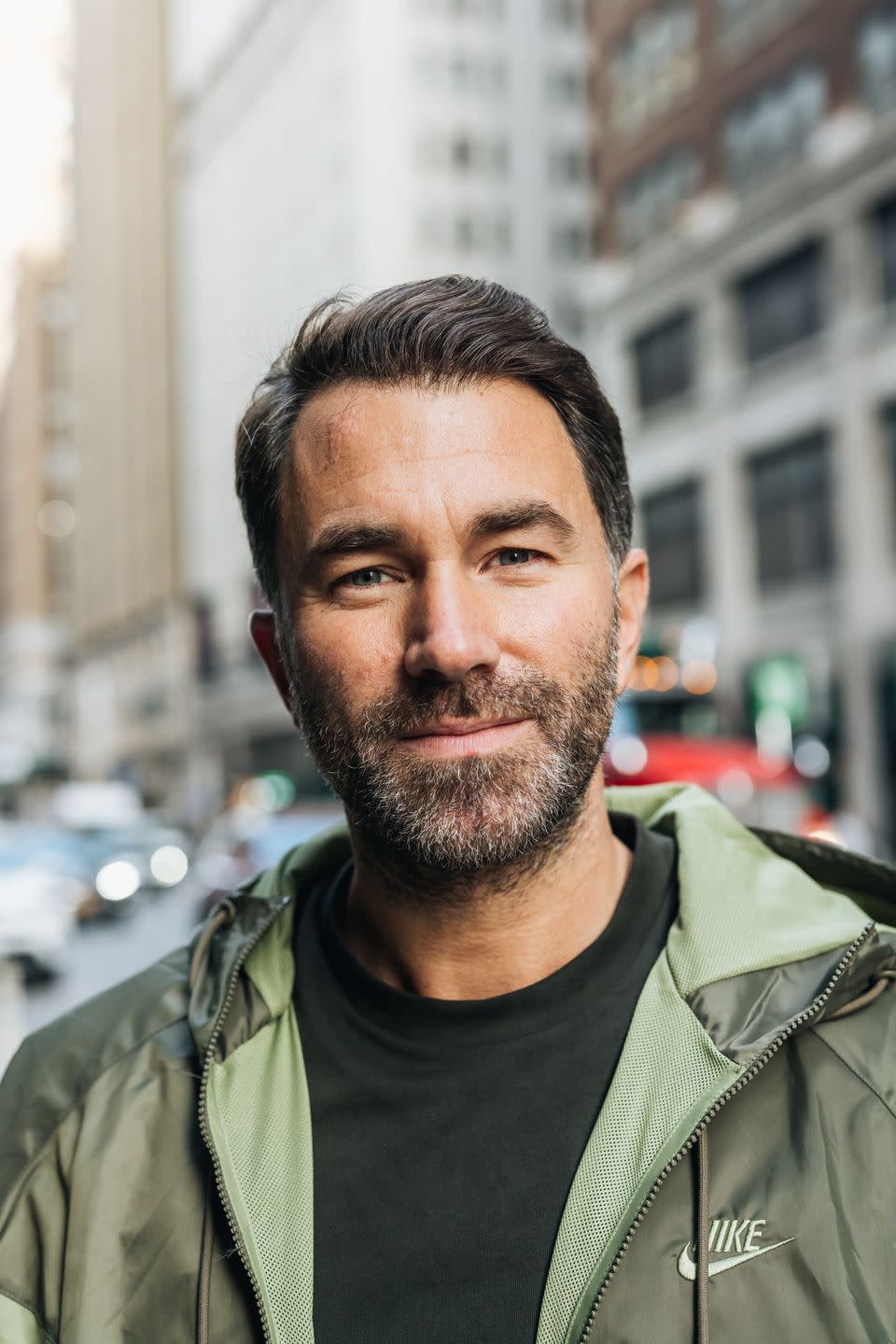
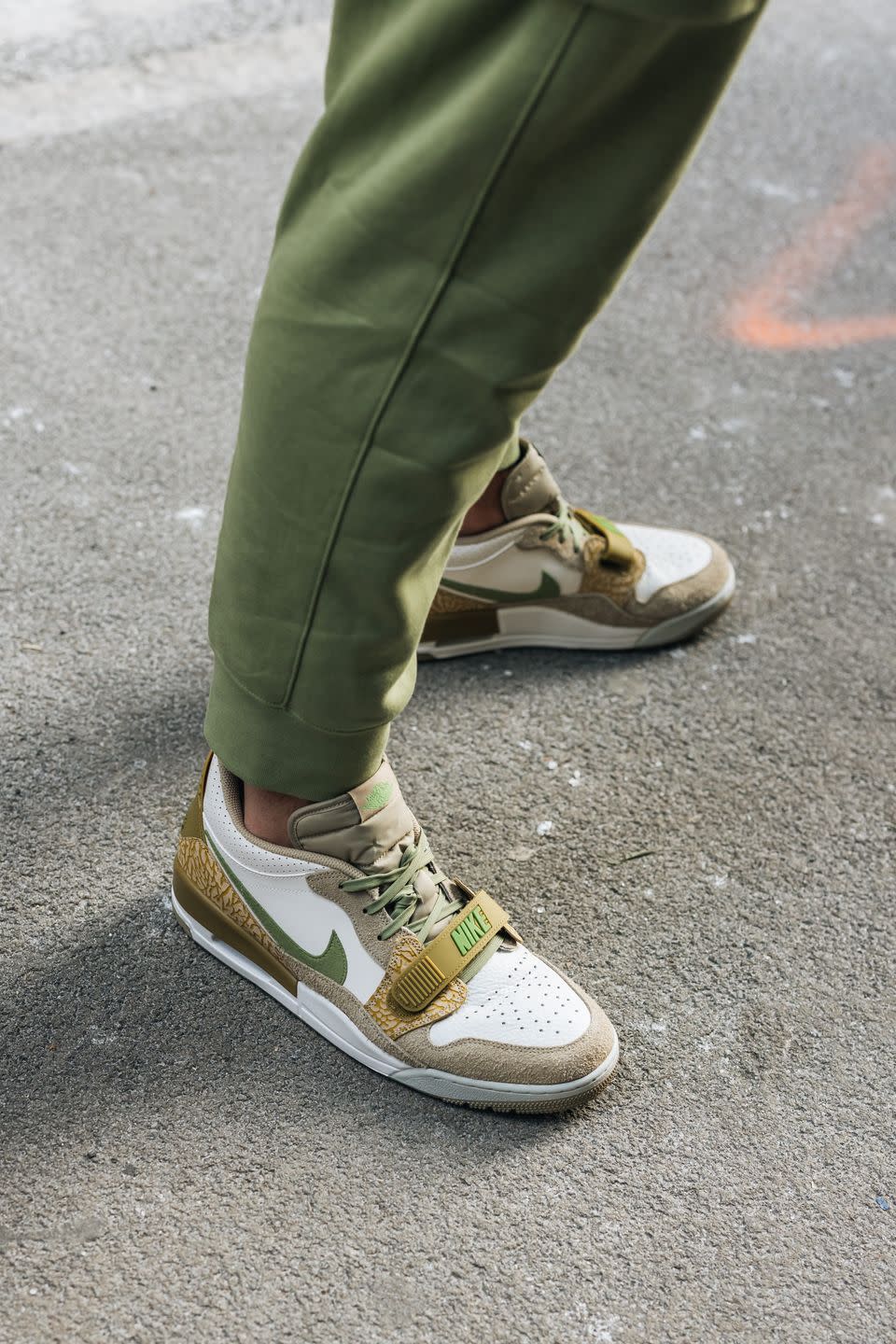
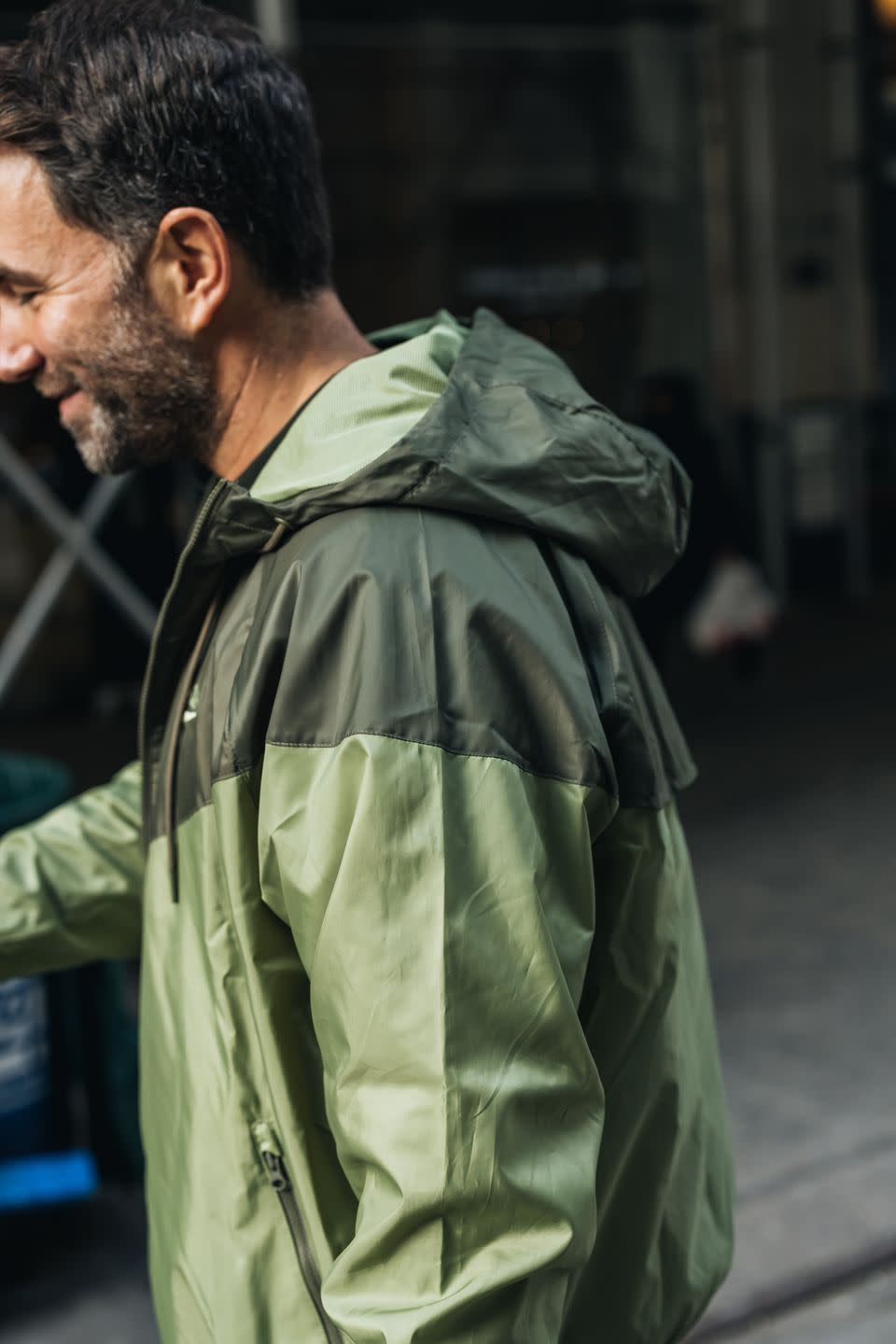
What place do style and fashion play in the boxing world?
I think fashion is about building your own identity. And I feel like when you're growing the profile of a fighter, their identity and their brand is very important, as is the narrative of that person. The way they dress helps me sell that narrative. If it's a kid from Brooklyn, for example—like a guy called Richardson Hitchins, whose family comes from a very underprivileged area—he will dress in a specific way, which might be street fashion for him, and a way to represent his culture and his upbringing of Brooklyn. I never say to people, "Oh, you need to dress like this." Some fighters will dress smarter, and that's their thing. They turn up at the press conference in a three-piece suit. I'm always trying to create and build the narrative of a fighter. That's down to what they wear after training, what they wear at press conferences, what they wear at weigh-ins, down to the kit in the ring—and the money they now spend on the kit in the ring is unbelievable. These fighters are sometimes spending a quarter of their money on the fight kit. It's diamonds here and all that. And that color and that image of the fight kit is really important in terms of how I can sell that fighter and who they appeal to.
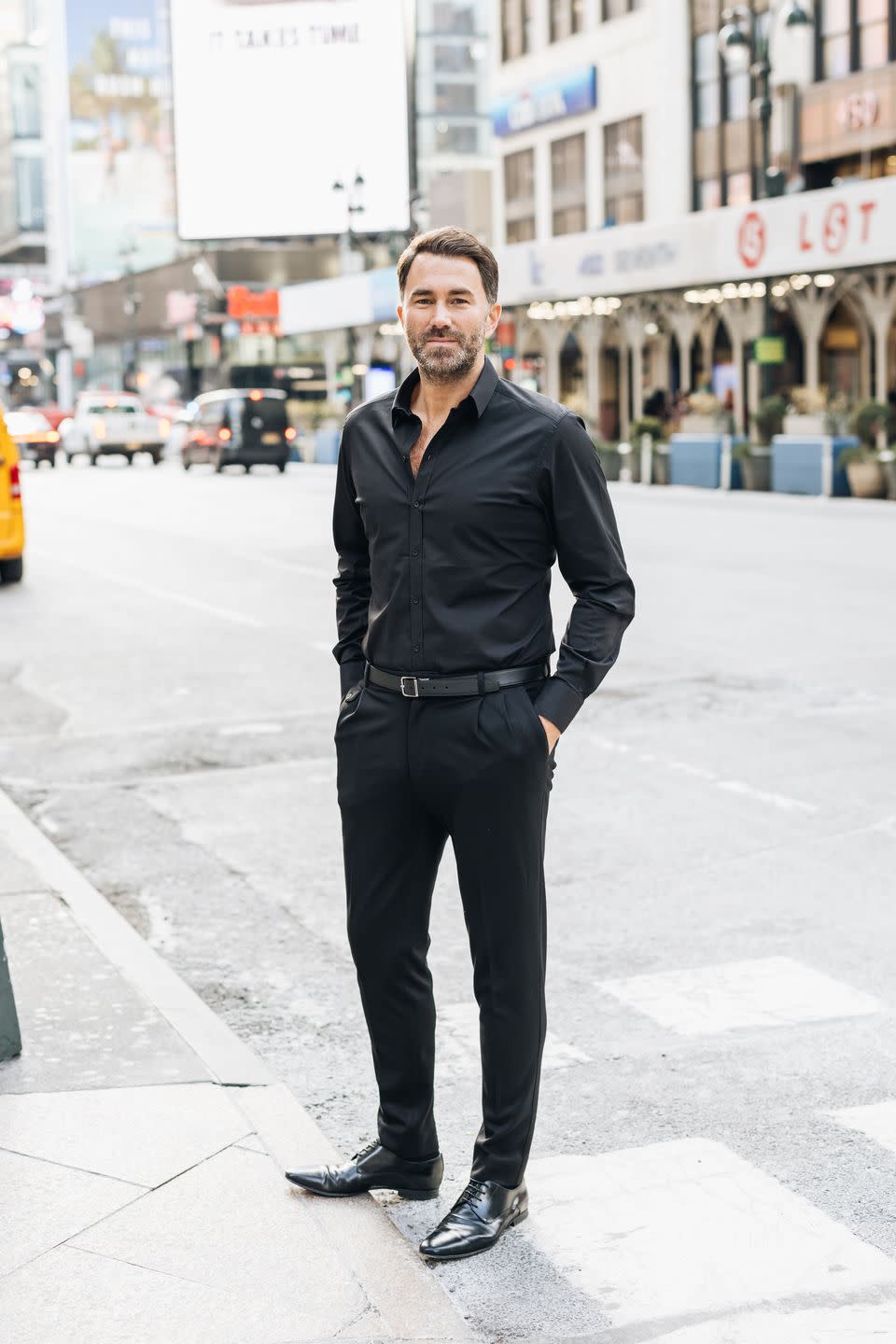
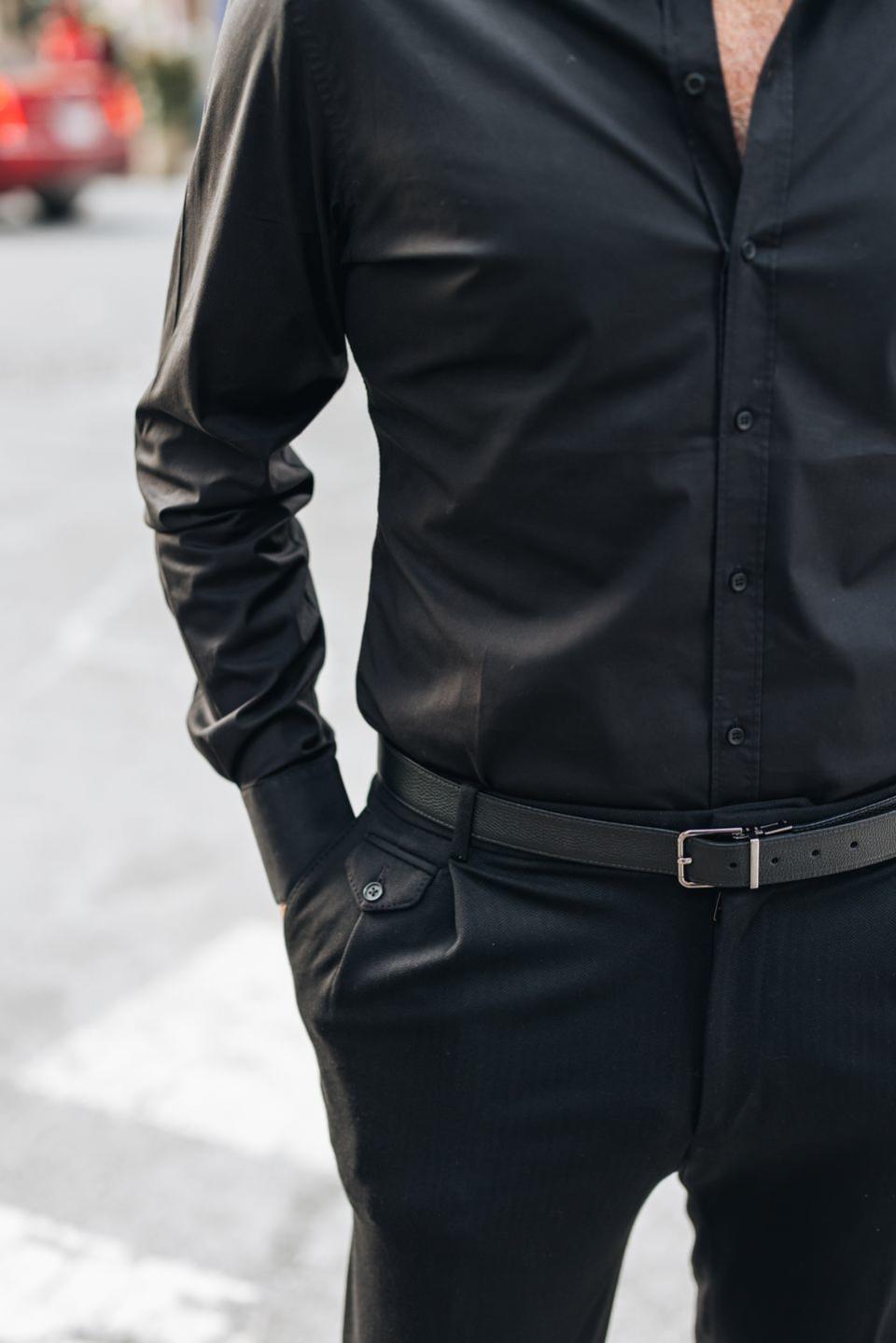
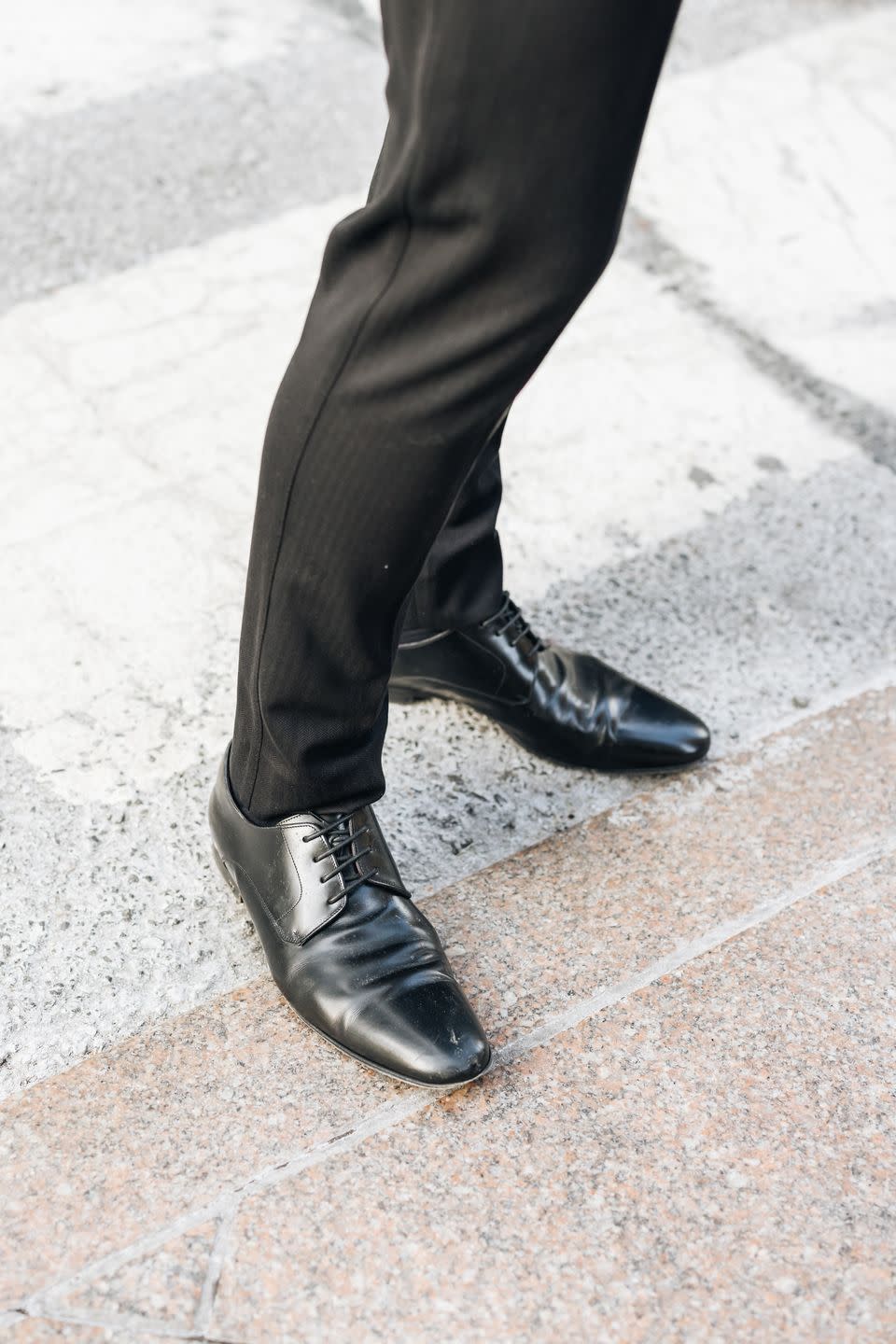
How long have you been interested in fashion? Can you remember the first moment that might have sparked your interest?
I think that I come from a family that has never really been overly focused on fashion. My dad will wear anything. He won't buy stuff like my mom will buy him. My mom is a very smart dresser, will always point out my shoes are a bit dirty and stuff like that. I was always taught to dress smartly, but as I've got a little bit older, I've actually gone the other way, where I like to wear what I'm comfortable in. I like to look sharp in a tailored suit, but I like streetwear now. People see me a lot more now in tracksuits. At first it was quite weird. They're like, "Wow, you're wearing a tracksuit, you're only ever in a suit." And I'm like, "Yeah, but this is me really." In the last year and a half, I lost weight, got into decent shape and it just makes you expand your repertoire of what you want to wear. Being 6’5” and 230 pounds, it's hard to dress in a lot of places. A lot of my friends are also designers. I'm very close with the Dolce & Gabbana guys through their deal with Canelo Álvarez, so I do get the benefit of being able to work with different brands. Anthony Joshua has a big deal with Hugo Boss. I just hang on the coattails and see what I can get for free.
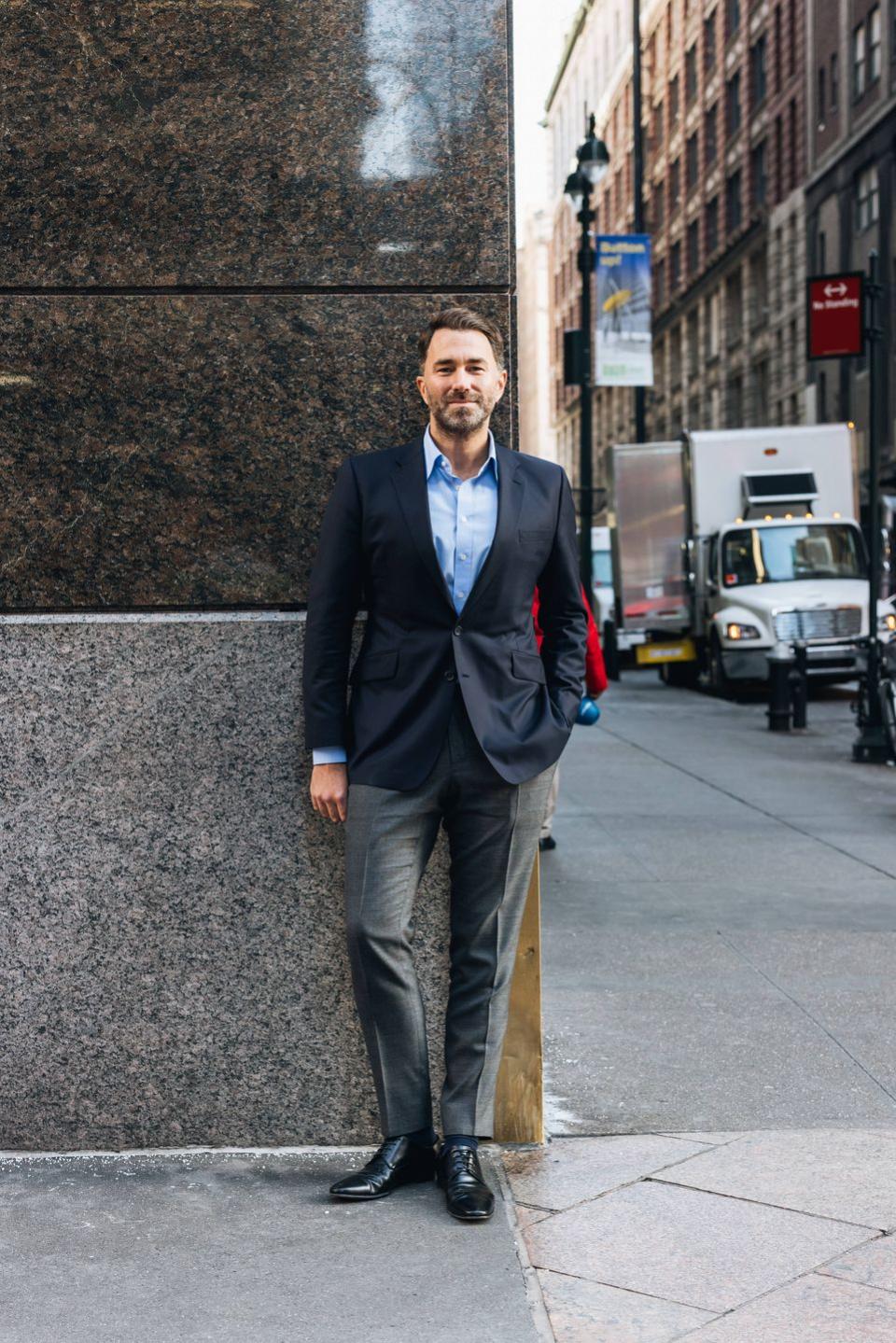
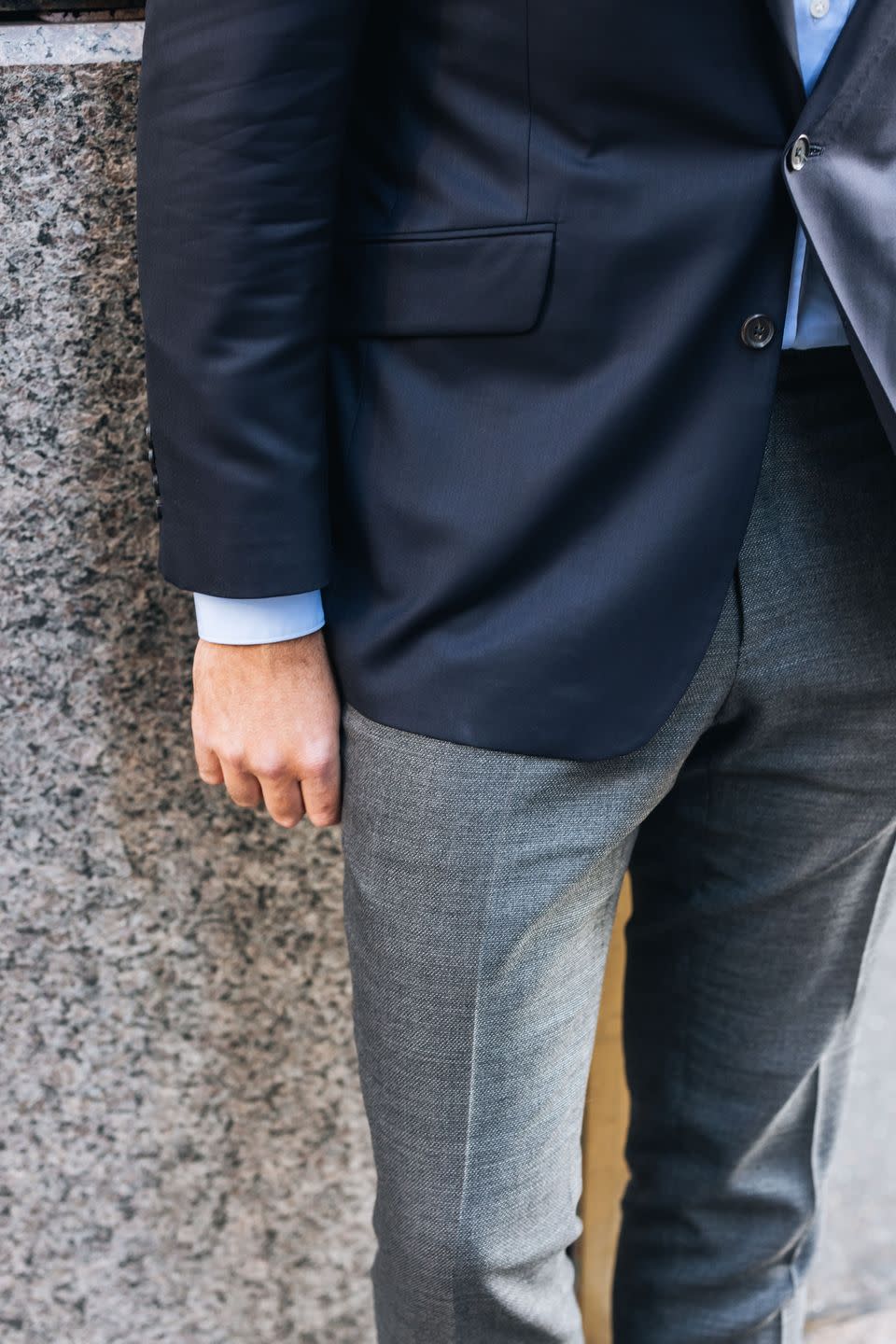
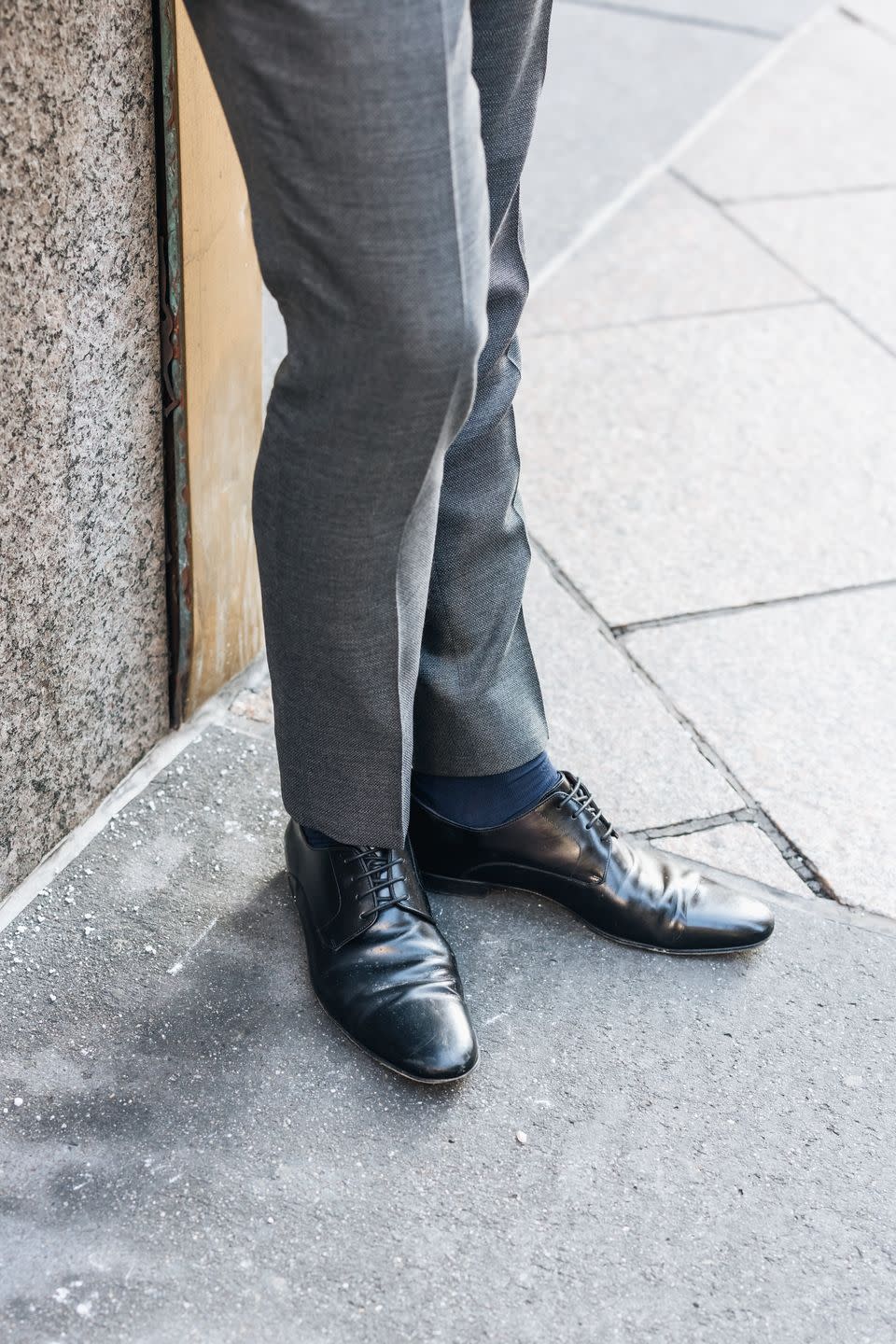
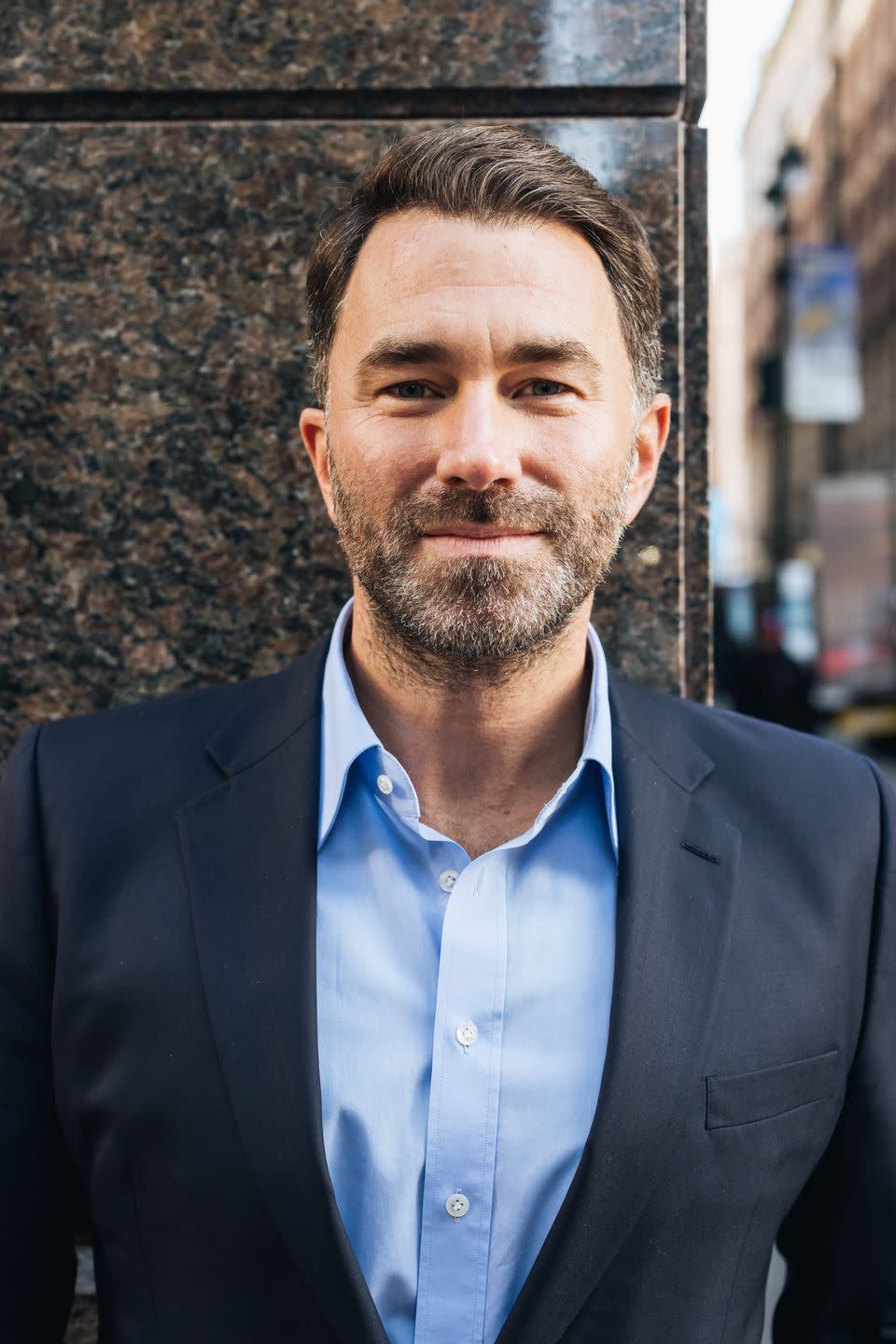
What is the most recent clothing item you purchased and is there anything you're currently on the hunt for?
I just took collection of my double-breasted tuxedo from Thom Sweeney. I never used to like double-breasted suits and jackets, but now I only like them. I've gone right off single-breasted, maybe because they look a bit better on me now. That double-breasted is blue with wide lapels; really sharp. I also bought a white cream tuxedo jacket from Thom Sweeney, which I've yet to wear. I'm now into my shoes, but sport shoes. My kids will always take the mickey out of me because they wear Jordans all the time. I've got two dozen pairs of Jordans. Every time I put them on, they're like, "Dad, why are you wearing Jordans?” So: more Jordans.
You Might Also Like

